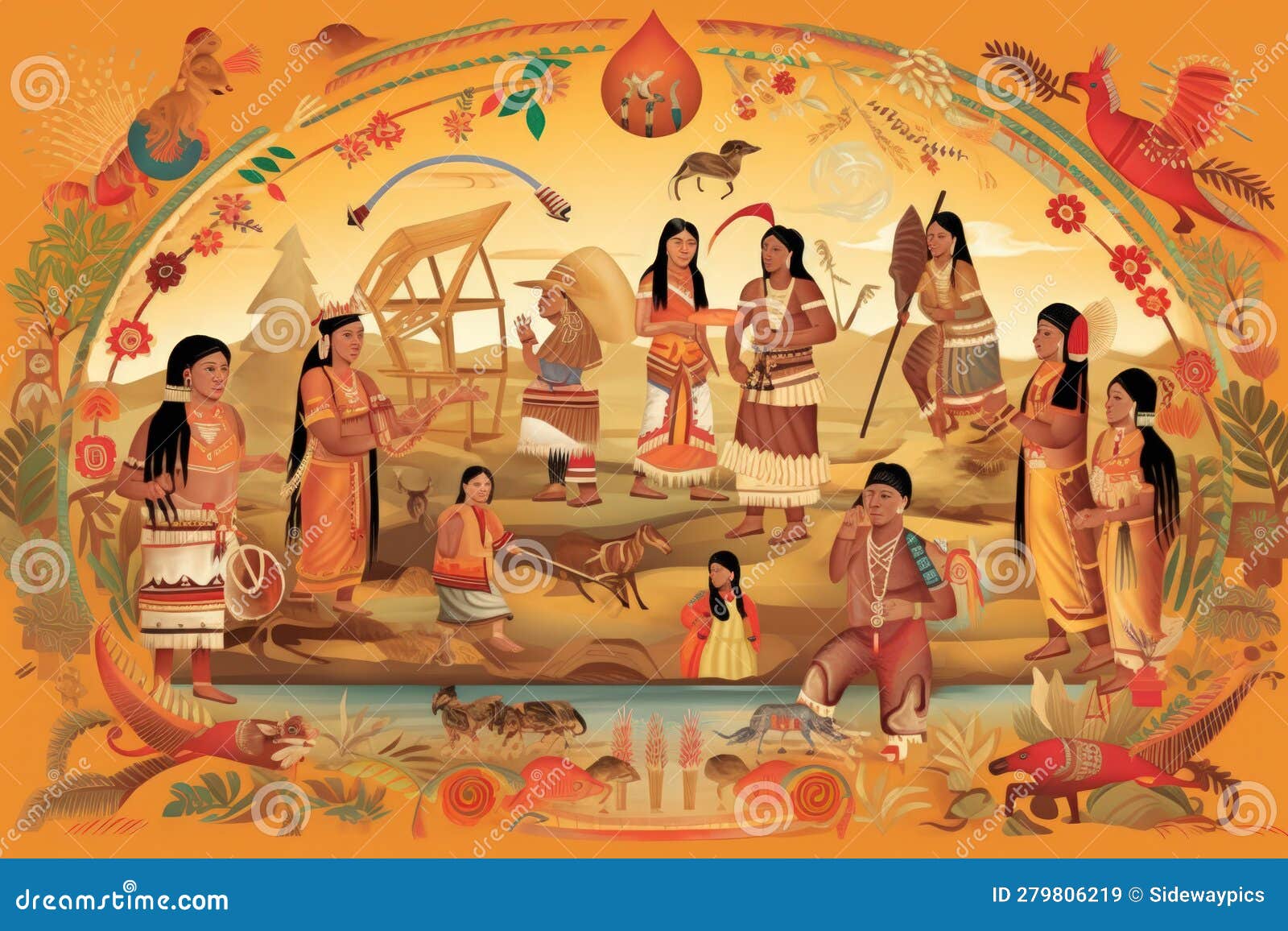Data Sovereignty And Cultural Preservation: The Work Of Indigenous Scientists

Table of Contents
The Critical Need for Indigenous Data Sovereignty
Data sovereignty, in the context of Indigenous communities, refers to the right of Indigenous peoples to govern the collection, ownership, control, access, use, and sharing of their data. This is paramount because it directly impacts their cultural survival and self-determination. Historically, Indigenous communities have experienced significant harm due to the exploitation of their data. Researchers and corporations have often collected data without consent, misrepresented cultural practices, and commodified Indigenous knowledge for profit without benefit-sharing agreements. This has led to:
- Loss of traditional knowledge: Unauthorized access to sacred stories, medicinal plant knowledge, and other culturally significant information can lead to its erosion and loss.
- Misrepresentation of cultural practices and beliefs: Inaccurate or biased research can perpetuate harmful stereotypes and misunderstandings of Indigenous cultures.
- Commodification of Indigenous knowledge: The unauthorized use of Indigenous knowledge in patents, products, or research publications without proper compensation or recognition is a form of cultural appropriation.
- Erosion of self-determination and cultural identity: The control of data about Indigenous communities should rest with those communities themselves. Lack of control leads to a loss of agency and undermines cultural identity.
Examples of data misuse impacting Indigenous communities are numerous and varied, ranging from genetic research conducted without informed consent to the use of Indigenous languages in commercial products without attribution or compensation. The consequences of such actions extend far beyond individual instances and threaten the very fabric of Indigenous cultures.
Indigenous Scientists as Guardians of Cultural Heritage
Indigenous scientists are increasingly taking the lead in reclaiming and protecting their data. They bring unique perspectives and methodologies to research, grounded in their deep understanding of their cultures and environments. Their approach emphasizes:
- Community-based participatory research models: Research projects are designed and implemented in collaboration with the community, ensuring that research outcomes benefit the community directly.
- Ethical data collection, management, and access: Indigenous-led initiatives prioritize informed consent, data security, and control over who can access and use the data.
- Development of Indigenous-led data governance frameworks: These frameworks establish clear guidelines and protocols for data management, ensuring that Indigenous knowledge is protected and respected.
- Use of traditional ecological knowledge (TEK) integrated with modern science: TEK, passed down through generations, provides valuable insights into environmental management and resource sustainability, which can be integrated into modern scientific research using technology.
Successful Indigenous-led data initiatives demonstrate the power of this approach. For instance, projects documenting Indigenous languages using digital tools, or those mapping traditional territories using GIS technology, empower communities to preserve and share their heritage on their own terms, ensuring data sovereignty.
Traditional Ecological Knowledge (TEK) and Data Integration
Traditional Ecological Knowledge (TEK) holds immense value for modern data management and scientific research. It provides a long-term perspective on environmental change and resource management often absent in Western scientific approaches. Integrating TEK into research enhances data analysis and interpretation:
- Integrating oral histories and traditional practices into datasets: Oral histories and traditional ecological practices can provide crucial context and insights, enriching datasets and improving data accuracy.
- Utilizing Indigenous methodologies for data collection and analysis: Indigenous methodologies, often rooted in observation and participatory research, can offer alternative ways of understanding ecological systems.
- Developing culturally appropriate data visualization tools: Data visualization tools should be designed in ways that are accessible and meaningful to Indigenous communities.
- Combating the limitations of Western scientific approaches: Western science often relies on quantitative data, neglecting qualitative data sources important in understanding complex socio-ecological systems. TEK helps bridge this gap.
Building Capacity and Fostering Collaboration
To effectively advance Indigenous data sovereignty, increased funding and support for Indigenous-led research are crucial. Collaboration between Indigenous communities, researchers, and policymakers is essential:
- Funding opportunities for Indigenous data sovereignty initiatives: Dedicated funding streams are needed to support Indigenous-led research, data management, and capacity building.
- Mentorship programs for Indigenous scientists: Mentorship programs can provide support and guidance to emerging Indigenous scientists, fostering leadership and expertise.
- Developing culturally sensitive data management training: Training programs must be designed to respect Indigenous knowledge systems and build capacity within communities.
- Establishing collaborative research partnerships: Meaningful partnerships between Indigenous communities and researchers ensure that research is ethically conducted and benefits the community.
The Future of Indigenous Data Sovereignty
The future of Indigenous data sovereignty requires ongoing efforts to address challenges and advocate for policy changes:
- Advocating for legislation that protects Indigenous data rights: Legislation is needed to establish clear legal frameworks for Indigenous data ownership and control.
- Developing international standards for Indigenous data governance: International standards can help ensure consistency and protect Indigenous data rights globally.
- Promoting awareness and education on Indigenous data sovereignty: Raising awareness among researchers, policymakers, and the public is vital for promoting responsible data practices.
- The role of technology in preserving and protecting Indigenous knowledge: Technology can play a vital role in preserving and sharing Indigenous knowledge, but it must be used ethically and responsibly, respecting Indigenous data sovereignty.
Data sovereignty is not merely a technical issue; it is a fundamental right for Indigenous communities, crucial for the preservation of their cultural heritage. Indigenous scientists are at the forefront of this critical movement, developing innovative approaches to data management and research that respect traditional knowledge and promote self-determination. By supporting their work and advocating for policies that prioritize Indigenous data rights, we can contribute to a future where cultural preservation and scientific advancement go hand in hand. Let's work together to empower Indigenous communities and protect their invaluable contributions through the advancement of Indigenous data sovereignty and responsible data management practices.

Featured Posts
-
 Captain America Brave New World Digital Release Where To Watch And Physical Media Release Date And Price
May 14, 2025
Captain America Brave New World Digital Release Where To Watch And Physical Media Release Date And Price
May 14, 2025 -
 Disney S Captain America Brave New World Everything We Know So Far
May 14, 2025
Disney S Captain America Brave New World Everything We Know So Far
May 14, 2025 -
 Investors Submit Revised Bid For Quebecs Lion Electric
May 14, 2025
Investors Submit Revised Bid For Quebecs Lion Electric
May 14, 2025 -
 Indigenous Scientists Protecting Data And Cultural Knowledge
May 14, 2025
Indigenous Scientists Protecting Data And Cultural Knowledge
May 14, 2025 -
 Where To Stream Captain America Brave New World On Pvod Online
May 14, 2025
Where To Stream Captain America Brave New World On Pvod Online
May 14, 2025
Latest Posts
-
 Mcus Captain America Brave New World Why The Low Box Office Gross
May 14, 2025
Mcus Captain America Brave New World Why The Low Box Office Gross
May 14, 2025 -
 Captain America Brave New Worlds Low Box Office Numbers Explained
May 14, 2025
Captain America Brave New Worlds Low Box Office Numbers Explained
May 14, 2025 -
 Captain America 4 Box Office A Disappointing Debut For The Mcu
May 14, 2025
Captain America 4 Box Office A Disappointing Debut For The Mcu
May 14, 2025 -
 Captain America Brave New World Box Office Underperforms
May 14, 2025
Captain America Brave New World Box Office Underperforms
May 14, 2025 -
 The 14 Biggest Walmart Great Value Product Recalls
May 14, 2025
The 14 Biggest Walmart Great Value Product Recalls
May 14, 2025
